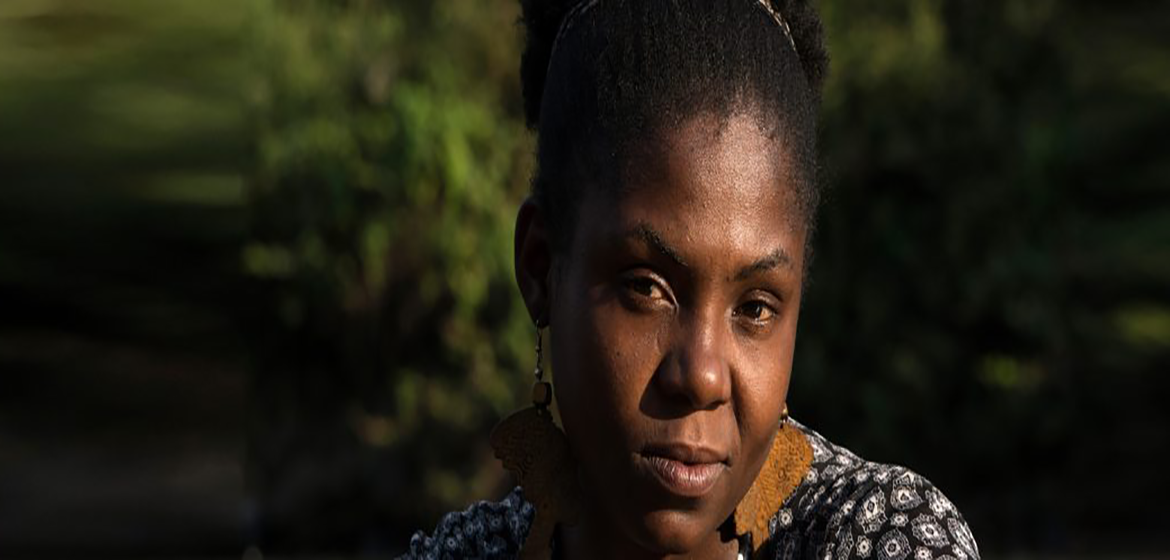A formidable leader of the Afro-Colombian community, Francia Márquez organized the women of La Toma and stopped illegal gold mining on their ancestral land. She exerted steady pressure on the Colombian government and spearheaded a 10-day, 350-mile march of 80 women to the nation’s capital, resulting in the removal of all illegal miners and equipment from her community.
The pillage of ancestral lands
Illegal gold mining is a growing problem in Colombia, where 80% of gold is mined unlawfully, with devastating impacts on the environment—including deforestation and contamination of water sources. Illegal gold miners are estimated to dump more than 30 tons of mercury into rivers and lakes in the Amazon region each year, poisoning fish and people as far as 250 miles downstream.
La Toma sits in the Cauca Mountains of southwest Colombia, at the epicenter of the country’s illegal gold mining epidemic. The region is home to a quarter million Afro-Colombians, a population that originally was brought as slaves from Africa to work in Colombia’s colonial mines and haciendas. The Afro-Colombian community has practiced agriculture and artisanal mining for generations, using pickaxes and panning for gold nuggets in the Ovejas River. The Ovejas is the lifeblood of the community, providing water to drink and fish to eat year-round.
In 2014, illegal miners began operating 14 backhoes on the banks of the Ovejas River near La Toma, wreaking havoc on the local environment. They cleared forests and dug deep open pits, destroying the natural flow of the river and killing fish. An estimated 2,000 such backhoes dotted the Cauca region.
Hordes of illegal miners, numbering in the thousands, descended upon the open pits in a rush for gold. Illegal miners used mercury and cyanide to extract the gold from dirt and rock. These toxic chemicals flowed directly into the Ovejas River, contaminating the community’s only source of fresh water. Mining camps transformed into small cities, much like the boom towns of the California Gold Rush. With populations of up to 5,000 people, these cities gave rise to prostitution, illegal drug use, and rampant violence as miners preyed upon and clashed with local residents.
Francia Márquez, 36, is a single mother of two who was born in Yolombo, a village in the Cauca region. She first became an activist at 13, when construction of a dam threatened her community, and has employed Afro-Colombian music and dance as key elements of her cultural and political expression. As a young woman, Márquez became a local leader who took on the struggle for environmental and ancestral land rights, fighting and beating back incursions into La Toma by multi-national mining companies. She also educated farmers in her region on sustainable agricultural techniques and joined the national Afro-Colombian network to promote Afro-Colombian cultural and land rights. She is currently studying law at Santiago de Cali University.
Challenging illegal mining
In 2014, the first backhoes arrived in La Toma. Hearing of the devastation, Márquez put her legal studies on hold and returned to La Toma. She directly confronted the backhoe operators—to no avail. Undeterred, she gathered community members to plan a strategy, knowing that she needed to unite the women of La Toma if they were going to save their town, river, and people.
Márquez appealed to the UN High Commissioner for Colombia, then organized a 10-day, 350-kilometer march of 80 women who trekked from the Cauca Mountains to Bogota in November 2014. The march brought widespread national attention to the environmental and social destruction that illegal mining was causing in La Toma and other communities in the Cauca region.
Once in Bogota, Márquez and the women spent 22 days protesting on the streets. In December 2014, Márquez and the community of La Toma reached an agreement with the Colombian government. Officials agreed to take action to eradicate illegal mining in La Toma. All machinery and backhoes found to be operating illegally in the region would be seized and destroyed. In 2015, the government created a national task force on illegal mining—the first of its kind in Colombia. As a direct result of Márquez’s work, all illegal mining operations in La Toma ceased. By the end of 2016, all illegal mining machinery operating in La Toma had been physically removed or destroyed by Colombian security forces.
Throughout the 2014-2016 campaign to combat illegal mining in La Toma, Márquez was repeatedly harassed, disrespected, and threatened. She was forced to move to Cali for her safety. Márquez continues to press the government to study the effects of illegal mining in the northern Cauca region, especially the contamination of the Ovejas and other rivers. Independent reports are showing mercury levels of up to 500 parts per billion in those critical water sources, while Colombian standards permit up to 1 part per billion in potable water. Mercury and cyanide contamination of water continues to cause serious health problems for the people of La Toma and the wider region.
Márquez’s success in La Toma has been a powerful example for others in the region, inspiring residents to resist illegal mining in their communities. She overcame sexism, racism, and corruption to lead La Toma’s struggle, and is now seeking to represent the Afro-Colombian community—and its stewardship of its ancestral land—in the Colombian House of Representatives.
Source:
Related to SDG 10: Reduced inequalities, SDG 5: Gender equality and SDG 16: Peace, justice and strong institutions



